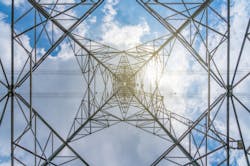Grid Operator's Utilities Begin to Shelter in Place to Maintain Critical Facilities
For utilities in areas hit hard by coronavirus infection, their emergency plans to shelter in place to maintain critical infrastructure facilities is no longer an abstract plan, but is being put into action on a scale not seen before in most countries.
Technician teams at the New York Independent System Operator headquarters in Rensselaer, New York moved into trailers and are prepared for a working self-quarantine that could last for weeks, according to Bloomberg News. The teams will be kept isolated from the outside as well as one another as they work to manage the flow of electricity across the grid.
The grid operators are working 12-hour shifts in trailers that include a small kitchen, bath and propane heat. The NYISO told Bloomberg this was the grid operator’s first ever sheltering in place, adding that it may be the first U.S. grid operator to do so.
The PJM Interconnection has stocked its control rooms with food, cots and toiletries in case they need to go into quarantine. So far, they are working normal shifts, according to reports.
PJM and NYISO’s counterparts across the country, the California Independent System Operator, the Energy Reliability Council of Texas and the New England California Independent System Operator, have key employees sequestered as they enact their pandemic response measures.
Ohio-based FirstEnergy Corp., which provides electricity service to 6 million customers in 7 Eastern U.S. states, is enacting several policy changes to keep its critical workers safe. The utility said it is developing its response with the guidance of the Centers for Disease Control and Prevention, the National Institutes of Health, and the World Health Organization as well as the company’s corporate health and safety group.
FirstEnergy’s actions include temperature self-checks prior to reporting to work, staying home if there are signs of illness, enhanced cleaning at company facilities, providing cleaning supplies for equipment and vehicle cleaning, prohibiting site visits by non-essential people, splitting workers up into smaller work groups, and offering medical personnel for those with health questions.
"Safety is a core value at FirstEnergy, and we care deeply about our employees who are working hard every day to ensure the safe and reliable operation of our electric system," said Charles E. Jones, president and CEO of FirstEnergy. "The coronavirus health emergency is likely to disrupt our daily lives for quite some time, and we are taking extensive steps to protect our employees and the public every step of the way. FirstEnergy is prepared to face this crisis and keep power flowing around the clock."
FirstEnergy said as of March 26, the company has not had a confirmed case of COVID-19 among its 12,000 employees. The utility requires 14-day quarantines for potentially infected employees and their immediate coworkers, cleaning and disinfecting any impacted areas using methods approved by the CDC, and enhanced cleaning of workplaces, including offices and shop locations.
In the Midwest, Xcel Energy and Great River Energy both told the Minneapolis Star-Tribune they have plans to sequester their workers if COVID-19 becomes more pronounced in their service area. Plans include stocking up critical facilities with the needed goods to keep workers fed and sheltered as they work.
About the Author
Jeff Postelwait
Managing Editor
Jeff Postelwait is a writer and editor with a background in newspapers and online editing who has been writing about the electric utility industry since 2008. Jeff is senior editor for T&D World magazine and sits on the advisory board of the T&D World Conference and Exhibition. Utility Products, Power Engineering, Powergrid International and Electric Light & Power are some of the other publications in which Jeff's work has been featured. Jeff received his degree in journalism news editing from Oklahoma State University and currently operates out of Oregon.
